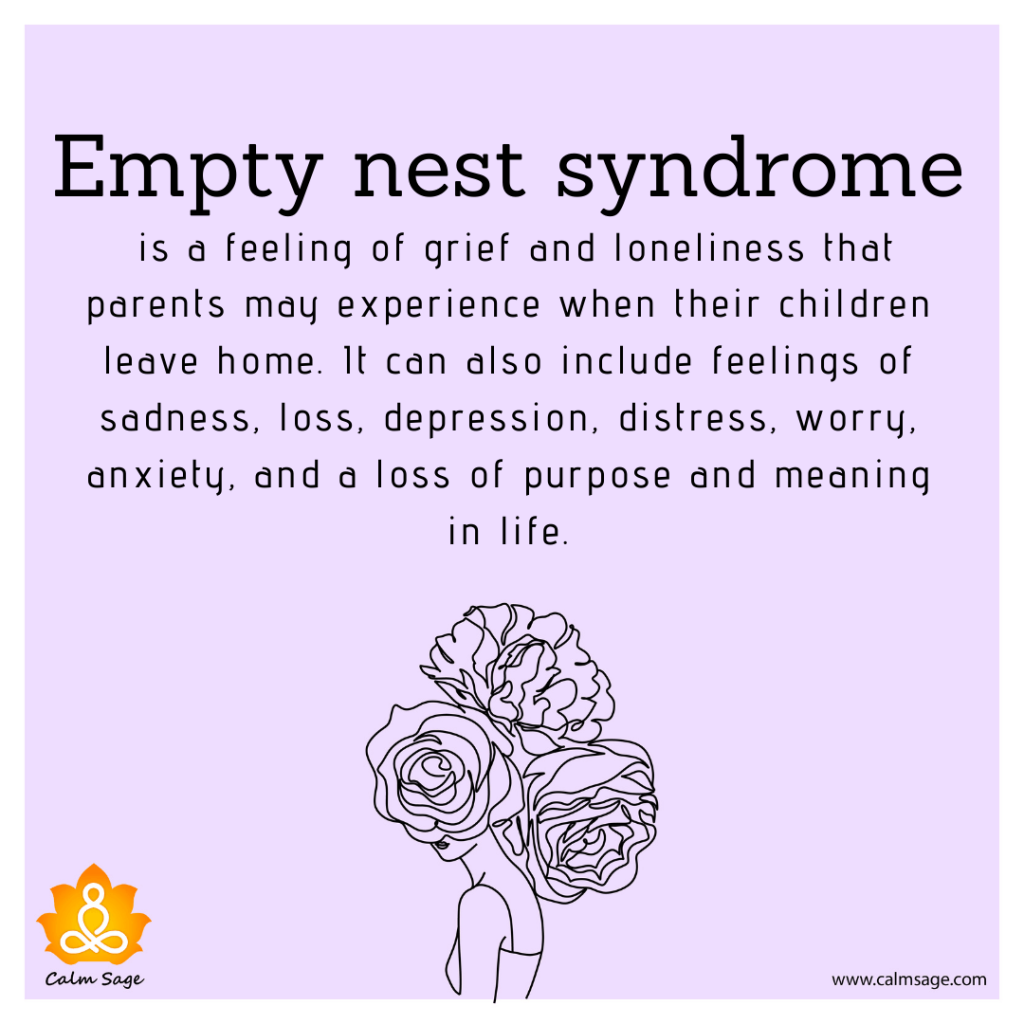From Full House to Empty Nest: Coping With Being an Empty Nester

Life might’ve been a box of chocolates in Mama Gump’s world, but to me, life has always been like movie transitions. It begins when you’re a toddler, recording all your best and happiest moments. Then, transitioning to your awkward teenage years, recording shots worth your embarrassment. Then, transitioning to your self-reflective adulthood, and after a series of quite oblivious realizations, there’s the transition to one of the most scary and significant moments of your life; watching your children leave home to start their own adventures!
This might be very well the most exhilarating and terrifying time of any parent’s life. Also known as the empty nest syndrome, this life transition can be challenging and transformative for parents all over.
Your kids leaving for college, leaving their hometown after their marriage, or starting a new job across the world – any of these instances can leave you with feelings of loss and sadness. However, not all parents live through the empty nest syndrome, but if you’re familiar with these feelings, then you might associate it with the word, “bittersweet”.
Do you agree? Well, today we’re exploring this bittersweet feeling your heart is going through and see how you can cope with being an empty nester!
List of Contents
What is the Empty Nest Syndrome?
Empty Nest Syndrome is a term that can be commonly used to describe the feelings of sadness, grief, and loneliness most parents experience when their children leave home, more often for college, work, or to start their families. These feelings are a natural response to major life transitions that signify a strangely intense shift in the family dynamics.

Parents going through the empty nest syndrome might experience a wide range of emotions, from sadness to grief, and from relief to pride (quite contradictory, I know!). However, with this, parents might also struggle to find themselves as they are forced to reflect and redefine their purpose and sense of self-identity.
The absence of children at home can also disrupt the house routines, leaving parents with a void. More often than not, not having children at home can cause a major shift in the parents’ relationship, needing adjustments and a renewed sense of connection between the parents themselves.
Empty Nest Syndrome Symptoms
Spotting empty nest syndrome symptoms is important to understand and address its impact on your life. Some common symptoms of empty nest syndrome can include;
- Feelings of loss
- Feeling lonely
- Feelings of stress
- Increased anxiety
- Feelings of low self-esteem and low self-worth
- Feelings of restlessness
- Feeling irritation or frustration with your partner
- Feelings of low motivation
- Experiencing low energy
- Wanting to re-examine your relationship with your partner
What Causes Empty Nest Syndrome?
Knowing what causes empty nest syndrome can help you navigate this transition more smoothly. If you’ve been too heavily invested in your child’s life or have taken your role as parents too seriously, then you might find it challenging to adjust when your child flees the nest aka becomes independent.
The abrupt change in your daily routine might also be too disorienting, causing you to feel emotionally distressed and trigger empty nest syndrome. Moreover, if you’ve had unrealistic expectations about your child, such as expecting constant contact, then not having them fulfilled can also cause feelings of emptiness, triggering empty nest syndrome.
All your life, you’ve been present for your child and have been there to protect them from life’s uncertainties. But, as your child steps into real life on their own, you might struggle with the fear of the unknown, for your child’s sake. This fear can trigger your anxiety and fear for your child.
Is Empty Nest Depression Real?
Empty nest depression could be real. Empty nest depression is a more severe manifestation of empty nest syndrome and can be characterized by continuous feelings of sadness, hopelessness, and a lack of interest in activities you once enjoyed. It’s important to spot the signs of empty nest depression and seek support when needed.
Most parents struggle to adjust to this new role. However, if you’ve been experiencing empty nest syndrome symptoms or empty nest depression for more than two weeks or even months, then you might struggle with other aspects of your life such as financial health and physical health. If that’s the case, then it is recommended you speak to a professional for an assessment and treatment.
Coping With Empty Nest Syndrome
If you’ve been experiencing empty nest syndrome, then here are some coping tips to help you;
-
Accept The Transition
It’s time to acknowledge and accept this new transition in your life. Accept your feelings and allow yourself to feel whatever it is you’re feeling. Allow yourself to believe and accept that this transition is a natural process.
-
Seek Support
You don’t have to live with these feelings on your own. You can talk to your friends, family, and a professional mental health counselor about your feelings of being an empty nester. Sharing your feelings and experiences with other empty nesters can make you feel comforted and give you a new perspective.
Online-Therapy.com
Best at providing Cognitive-behavioral therapy

- Excellent qualified, certified, and trained therapists
- Unlimited communication with the therapist via video, audio, and chat
- Offers a therapy toolbox with access to worksheets, journals, and more
- Affordable weekly subscription plans to pick from
-
Reconnect With Yourself (And Your Partner)
Take this time and treat it as an opportunity to reconnect with yourself and your partner if you’re not a single parent. This time can help you rediscover your lost interests, passions, and hobbies. Try to reacquaint yourself with activities that brought you joy and fulfillment before your kids became your full-time responsibilities.
-
Invest in Your Relationships
Use this time away from your children to bond with your partner, friends, and family you have lost touch with. This time can help you work on your relationships and create a support system, as well as a network of friends to bring positivity and support into your life when you most need it.
-
Find a New Purpose in Life
You can also self-reflect and find new personal or professional goals to focus on. This can help you find a new life purpose and direction you can turn your car onto. Allow yourself to create new goals and embrace the changes that it brings to your life. Try to find joy in this new-found independence.
-
Stay Active!
Most of all, try to stay physically active as much as you can/ Physical activity can be a great tool in helping you overcome the feelings of depression and anxiety that empty nest syndrome brings along. Try to play sports, go for a run, or try other physical activities to keep yourself (and your mind) active.
-
Seek Professional Support
Either through support groups or seeking professional help from a therapist, you can reach out for help for all the feelings you’re experiencing. If your feelings of loneliness, sadness, and depression persist, then a professional can help guide you and offer personalized coping strategies to help you cope with empty nest syndrome.
Wrapping Up…
It might not be easy to see your child step out through those doors and into the real world but don’t forget that it’s the natural way of things. You did the same once, too! Empty nest syndrome is a real but challenging time in a parent’s life, but it doesn’t have to be a time of despair and loneliness.
By spotting the signs of empty nest syndrome and its causes, you can learn to cope and move through this transition with resilience and purpose. Try to embrace the change, seek support, and focus on yourself (and your partner!) to turn the empty nest into a space of new opportunities and self-discovery.
The journey might be going through a transition, but it’s far from over! Let’s look forward to the next chapter, together!
I hope this blog helped you learn more about empty nest syndrome and how to cope with it. Let me know what you think about becoming an empty nester in the comments below. If you liked reading the article, then do leave a thumbs up for us!
Take Care!




















